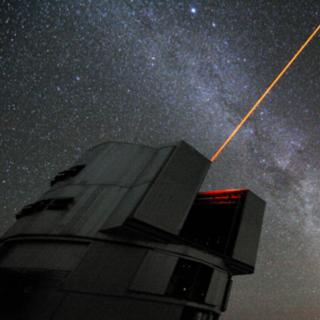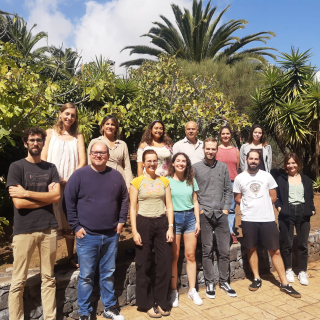Bibcode
Montes, Mireia; Infante-Sainz, Raúl; Madrigal-Aguado, Alberto; Román, Javier; Monelli, Matteo; Borlaff, Alejandro S.; Trujillo, Ignacio
Referencia bibliográfica
The Astrophysical Journal
Fecha de publicación:
12
2020
Revista
Número de citas
57
Número de citas referidas
55
Descripción
The existence of long-lived galaxies lacking dark matter represents a challenge to our understanding of how galaxies form. Here, we present evidence that explains the lack of dark matter in one such galaxy: NGC 1052-DF4. Deep optical imaging of the system has detected tidal tails in this object caused by its interaction with its neighboring galaxy NGC 1035. As stars are more centrally concentrated than dark matter, tidal stripping will remove a significant percentage of dark matter before affecting the stars of the galaxy. Only $\sim 7 \% $ of the stellar mass of the galaxy is in the tidal tails, suggesting that the stars of NGC 1052-DF4 are only now starting to be affected by the interaction, while the percentage of remaining dark matter is $\lesssim 1 \% $ . This naturally explains the low content of dark matter inferred for this galaxy and reconciles these types of galaxies with our current models of galaxy formation.
Proyectos relacionados

Evolución Galáctica en el Grupo Local
La formación y evolución de galaxias es un problema fundamental en Astrofísica. Su estudio requiere “viajar atrás en el tiempo”, para lo cual hay dos enfoques complementarios. El mas extendido consiste en analizar las propiedades de las galaxias a diferentes distancias cosmológicas. Nuestro equipo se concentra en el otro enfoque, denominado
Matteo
Monelli

Huellas de la Formación de las Galaxias: Poblaciones estelares, Dinámica y Morfología
Bienvenida a la página web del g rupo de investigación Traces of Galaxy Formation. Somos un grupo de investigación amplio, diverso y muy activo cuyo objetivo principal es entender la formación de galaxias en el Universo de una manera lo más completa posible. Con el estudio detellado de las poblaciones estelares como bandera, estamos constantemente
Ignacio
Martín Navarro